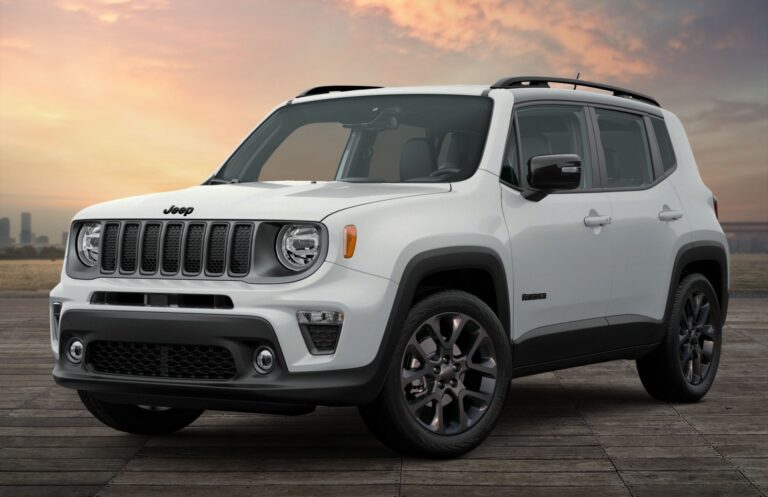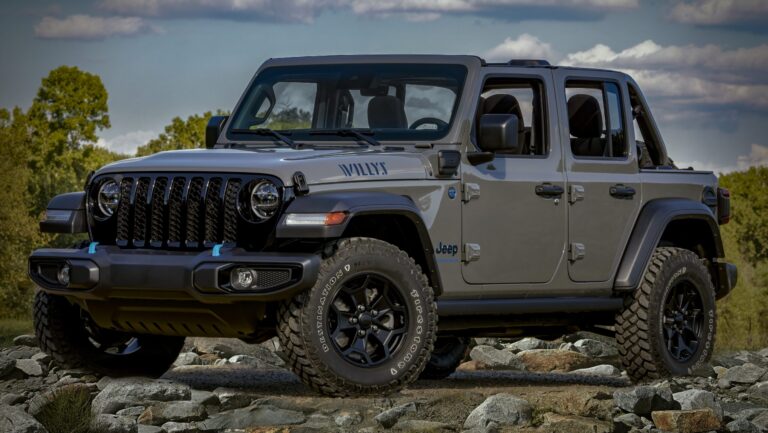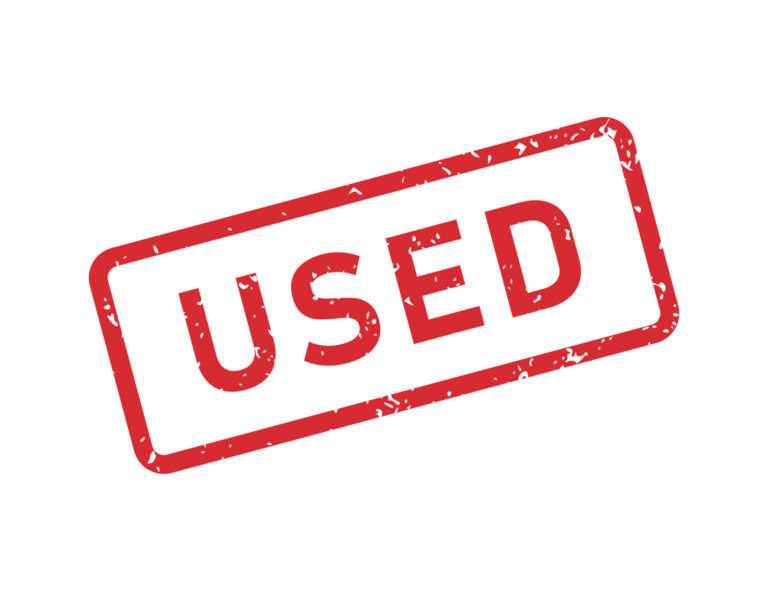Jeep 4.0 Stroker Engine For Sale: Unleashing the True Potential of Your Off-Road Icon
Jeep 4.0 Stroker Engine For Sale: Unleashing the True Potential of Your Off-Road Icon jeeps.truckstrend.com
The Jeep 4.0-liter inline-six engine, a legendary powerplant known for its robust reliability and surprising longevity, has powered countless Cherokees, Wranglers, and Grand Cherokees for decades. While revered for its dependability, many enthusiasts eventually crave more power, especially when tackling challenging off-road trails, hauling heavier loads, or simply desiring a more exhilarating daily drive. This desire often leads them to a powerful and popular solution: the Jeep 4.0 Stroker Engine.
A "stroker" engine is a modified version of the original, where the crankshaft’s stroke is increased, effectively enlarging the engine’s displacement. For the iconic Jeep 4.0L, this transformation typically involves integrating components from its larger sibling, the 4.2L (258 cubic inch) AMC inline-six, or utilizing custom-machined parts to achieve displacements ranging from 4.5 liters to over 5.0 liters. The result? A significant boost in horsepower and, more importantly for a Jeep, a massive surge in low-end torque. If you’re looking to redefine your Jeep’s performance capabilities, finding a quality Jeep 4.0 Stroker Engine for sale could be the most impactful upgrade you ever make.
Jeep 4.0 Stroker Engine For Sale: Unleashing the True Potential of Your Off-Road Icon
What Exactly is a Jeep 4.0 Stroker Engine?
At its core, a stroker engine is about increasing the volume of air and fuel an engine can consume and convert into power. In the case of the Jeep 4.0L (242 cubic inches), the "stroking" process primarily involves:
- Longer Stroke Crankshaft: The most common method is to use the crankshaft from an AMC 4.2L engine (often found in older CJs and YJs) which has a longer stroke than the 4.0L crank. Custom-built billet crankshafts are also an option for more extreme builds.
- Custom Connecting Rods: Due to the longer stroke, the original 4.0L connecting rods would push the pistons too high in the cylinder. Therefore, shorter custom-length connecting rods are required.
- Custom Pistons: Pistons with a revised compression height are often needed to ensure proper deck clearance and achieve the desired compression ratio.
- Cylinder Head Work: While not strictly part of the "stroking" mechanism, optimizing the cylinder head (porting, larger valves, valve spring upgrades) is crucial to allow the increased displacement to breathe efficiently and realize its full potential.
- Camshaft: A camshaft specifically ground to complement the increased displacement and desired power band is essential for optimal performance.

The most popular stroker configurations for the 4.0L typically yield displacements of 4.5L, 4.6L, 4.7L, or even 4.9L. Each step up in displacement generally translates to more power and torque, with the 4.7L being a particularly popular sweet spot for balancing performance and streetability.
Why Choose a Stroker for Your Jeep? The Undeniable Benefits
The decision to invest in a Jeep 4.0 Stroker Engine for sale isn’t just about bragging rights; it’s about transforming your vehicle’s performance in tangible ways:
- Significant Power and Torque Gains: This is the primary draw. A well-built stroker can easily add 50-100+ horsepower and a similar amount of torque over a stock 4.0L. This translates to quicker acceleration, less effort to maintain highway speeds, and vastly improved off-road crawling capability.
- Enhanced Off-Road Performance: The massive increase in low-end torque is a game-changer for off-roading. It allows your Jeep to crawl over obstacles with less throttle input, reducing the risk of wheel spin and improving control in challenging terrain. You’ll find yourself needing to downshift less often.
- Improved Daily Driving: Beyond the trails, a stroker makes your Jeep feel much more responsive and enjoyable on the pavement. Merging onto highways, passing slower traffic, and climbing grades become effortless.
- Towing Capability: If you tow a trailer, boat, or another vehicle, the added power and torque will make a noticeable difference, reducing strain on the drivetrain and improving safety.
- Cost-Effective Performance: Compared to a complete engine swap (e.g., V8 conversion), a stroker build often proves more cost-effective. It retains the original engine’s mounts, bell housing, and many accessories, simplifying the installation process and reducing overall project costs.
- Reliability (When Done Right): When built by reputable professionals using quality components, a stroker can be as reliable, if not more so, than a stock engine. The original 4.0L block is incredibly robust and handles the increased power well.


Key Components and Considerations for a Stroker Build
When looking for a Jeep 4.0 Stroker Engine for sale, understanding the components that go into a quality build is crucial:
- Block: The foundation is typically a strong, seasoned 4.0L block, often bored slightly oversized (e.g., 0.030" or 0.060").
- Crankshaft: Usually a 4.2L (258ci) crankshaft, or a new aftermarket billet crank for higher performance and durability.
- Connecting Rods: Forged, custom-length rods (e.g., Eagle, Scat) are essential. The choice between "short rod" and "long rod" configurations impacts piston speed and dwell time, influencing power characteristics.
- Pistons: Forged pistons are highly recommended for strength, with a specific compression height to match the rod and crank combination, and the desired compression ratio.
- Cylinder Head: A ported, flowed, and potentially big-valve cylinder head (like a refreshed 0630 or 0331 TUPY head, or an aftermarket head) is vital for efficient breathing.
- Camshaft: A custom grind camshaft optimized for the stroker’s displacement and intended use (e.g., low-end torque for off-roading, or higher RPM power for street performance).
- Valvetrain: Upgraded valve springs, retainers, and pushrods are often necessary to handle the higher lift and RPMs.
- Fuel System: Larger fuel injectors (e.g., 24lb/hr or more), a high-flow fuel pump, and sometimes an adjustable fuel pressure regulator are needed to supply enough fuel.
- Engine Management: ECU tuning (e.g., custom PCM flash, standalone ECU) is absolutely critical to optimize fuel delivery, ignition timing, and ensure proper running and maximum power.
- Cooling System: Increased horsepower generates more heat. An upgraded radiator (3-row, aluminum), high-flow water pump, and improved fan clutch or electric fans are highly recommended.
- Exhaust: A larger diameter exhaust system, including a header, will help the engine breathe out the increased volume of exhaust gases.
Types of Jeep 4.0 Stroker Builds
Stroker builds aren’t one-size-fits-all. They can be categorized by their displacement and intended use:
- Mild Stroker (e.g., 4.5L): Often uses more stock-like components, focusing on reliable, moderate power gains for daily driving and light trails. Less aggressive cam, stock-ish cylinder head.
- Moderate Stroker (e.g., 4.6L – 4.7L): The most popular choice. Balances significant power gains with good street manners. Often features forged components, a ported head, and a more aggressive cam. Excellent for serious off-roading and strong daily performance.
- Wild/Big Stroker (e.g., 4.9L+): Designed for maximum power. Utilizes fully forged internals, extensively ported heads, aggressive camshafts, and requires more robust supporting modifications. Can be less street-friendly and demand more specialized tuning and maintenance.
Important Considerations When Buying a Stroker Engine
Finding a Jeep 4.0 Stroker Engine for sale requires diligence and careful consideration to ensure you get a reliable, high-performance unit:
- Reputation of the Builder: This is paramount. Research specialized engine builders known for Jeep strokers. Look for reviews, testimonials, and examples of their work. Avoid unknown sellers or "garage builds" unless you have extensive mechanical expertise and can thoroughly inspect the engine.
- Documentation: A reputable builder will provide detailed documentation: a build sheet outlining every component used (crank, rods, pistons, cam, head work, etc.), dyno sheets showing power and torque curves, and warranty information.
- Completeness of the Engine: Is it a long block (block, crank, rods, pistons, cylinder head)? Or a complete engine with intake, exhaust manifolds, sensors, and accessories? The more complete, the easier the swap, but typically the higher the cost.
- Compatibility with Your Jeep: While the 4.0L block is fairly consistent, sensor locations and ECU compatibility can vary slightly between early (pre-96) and late (97+) models. Discuss your Jeep’s year and model with the seller/builder.
- Supporting Modifications: A stroker isn’t a bolt-in upgrade. You will need to upgrade your cooling system, fuel system, and possibly your transmission and axle components to handle the increased power. Factor these costs into your budget.
- Emissions Regulations: Be aware of your local and state emissions laws. A stroker engine, especially a larger one, might require specific catalytic converters and tuning to remain street legal.
- Warranty: A good warranty provides peace of mind. Understand what it covers, for how long, and what voids it.
Where to Find a Jeep 4.0 Stroker Engine For Sale
- Specialized Engine Builders: Companies like Titan Engines, Golen Engine Service, and others are renowned for their Jeep stroker builds. They offer various configurations, warranties, and support. This is often the safest and most reliable route.
- Jeep Forums and Classifieds: Websites like NAXJA (North American XJ Association), JeepForum, and dedicated Facebook groups often have members selling used or new stroker engines. Exercise extreme caution, request detailed photos, documentation, and potentially an independent inspection.
- Performance Shops: Local 4×4 or performance shops might build strokers in-house or source them from reputable builders.
- Online Marketplaces (with caution): eBay, Craigslist, etc., can list strokers, but verification of quality and origin is difficult. Buyer beware.
Installation and Break-in Tips
- Professional Installation: Unless you are an experienced mechanic with the right tools, professional installation is highly recommended. A stroker engine is a significant investment, and improper installation can lead to costly damage.
- Proper Break-in: Follow the builder’s recommended break-in procedure meticulously. This typically involves specific oil choices, varying RPMs, avoiding prolonged high loads, and an initial oil change after a few hundred miles.
- ECU Tuning: After installation, proper ECU tuning is absolutely crucial. This optimizes fuel maps, ignition timing, and other parameters for the new displacement and camshaft. Without it, your stroker will not perform optimally and could be damaged.
- Monitor Gauges: Pay close attention to your engine temperature, oil pressure, and voltage during the initial miles.
Potential Challenges and Solutions
- Heat Management: More power means more heat. Solution: Invest in a heavy-duty aluminum radiator, high-flow water pump, upgraded fan clutch, and ensure your cooling system is in top condition.
- Fueling Issues: Insufficient fuel delivery can lead to lean conditions and engine damage. Solution: Upgrade to larger fuel injectors and a higher-capacity fuel pump, and ensure proper ECU tuning.
- Drivetrain Stress: The increased power and torque can expose weaknesses in your transmission, transfer case, axles, and driveshafts. Solution: Budget for potential upgrades to these components, especially if you plan aggressive off-roading or heavy towing.
- Emissions Compliance: Depending on your location, passing emissions tests can be a concern. Solution: Work with your builder and tuner to ensure the engine runs cleanly and with proper catalytic converters. Some aggressive cams or tunes may make compliance difficult.
Price Table: Estimated Costs for Jeep 4.0 Stroker Engines
The cost of a Jeep 4.0 Stroker Engine for sale can vary significantly based on the builder, components used, displacement, and level of completeness. Here’s a general estimate:
| Stroker Configuration | Displacement (Approx.) | Inclusions | Estimated Price Range (USD) | Key Features/Notes |
|---|---|---|---|---|
| Mild Stroker | 4.5L – 4.6L | Long Block (block, crank, rods, pistons, head) | $3,500 – $5,500 | Refurbished components, basic rebuild kit, stock-like reliability, moderate power bump. |
| Moderate Stroker | 4.6L – 4.7L | Long Block with Forged Internals | $5,500 – $7,500 | Forged pistons/rods, refreshed/ported head, performance cam, significant power & torque. |
| Complete Moderate | 4.6L – 4.7L | Complete Engine (as above + intake, sensors) | $7,000 – $9,500 | Ready to drop in (less accessories), often includes new sensors, improved convenience. |
| Wild/Big Stroker | 4.9L – 5.0L+ | Fully Forged, Billet Crank Options | $8,000 – $12,000+ | Maximum performance, highly customized, requires extensive supporting mods & tuning. |
Notes on Pricing:
- Shipping Costs: Can add $300-$800+ depending on distance.
- Core Charge: Many builders require a core charge for your old 4.0L engine, which is refunded upon receipt of a usable core. (Typically $500 – $1000)
- Installation Costs: Professional installation can range from $1,500 – $3,000+, not including supporting modifications.
- Supporting Mods: Remember to budget for upgraded cooling, fuel system, exhaust, and potential drivetrain upgrades. These can easily add another $1,000 – $3,000+.
- Tuning: ECU tuning services can cost $300 – $800+.
Frequently Asked Questions (FAQ)
Q: What is the typical lifespan of a stroker engine?
A: When built correctly with quality components and properly maintained, a stroker can last as long as, or even longer than, a stock 4.0L. Many builders offer warranties similar to stock rebuilds (e.g., 1-3 years/36,000 miles).
Q: Do I need to upgrade my transmission and axles?
A: It’s highly recommended, especially if you plan on aggressive off-roading or heavy towing. The increased torque can quickly expose weaknesses in stock drivetrains. At a minimum, ensure your current transmission and axles are in good health.
Q: Will a stroker engine pass emissions tests?
A: It depends on your local regulations and the specific build. Mild strokers with proper tuning and catalytic converters often pass. More aggressive builds or those with radical camshafts may struggle. Always check local laws and discuss with your builder.
Q: Can I install a stroker engine myself?
A: If you have significant automotive experience, a well-equipped garage, and the necessary tools, it’s possible. However, engine installation, especially for a modified unit, is complex and requires precision. Professional installation is often recommended to protect your investment.
Q: What kind of fuel does a stroker engine require?
A: Most streetable strokers are designed to run on premium (91+ octane) gasoline due to their higher compression ratios. Always follow the builder’s recommendation.
Q: What’s the difference between a long-rod and short-rod stroker?
A: This refers to the length of the connecting rods used. A "long-rod" stroker uses longer rods relative to the stroke, resulting in less piston dwell at the top and bottom of the stroke, which can reduce side loading on the cylinder walls and potentially improve efficiency. A "short-rod" stroker has shorter rods, leading to more piston dwell at TDC and BDC, which can favor peak torque. The choice depends on the builder’s philosophy and desired power characteristics.
Conclusion
The Jeep 4.0 Stroker Engine represents a compelling upgrade for any enthusiast looking to extract more power and torque from their beloved 4.0L-powered Jeep. It’s a proven method to significantly enhance off-road capability, improve daily driving, and boost towing performance without the complexities and costs often associated with a complete engine swap.
While the prospect of a powerful stroker is exciting, remember that a successful project hinges on meticulous research, careful planning, and a willingness to invest in quality components and professional services. By choosing a reputable builder, understanding the associated costs (including supporting modifications), and committing to proper installation and maintenance, you can unleash the true potential of your Jeep and enjoy years of exhilarating, reliable performance. The journey to finding the perfect Jeep 4.0 Stroker Engine for sale might require effort, but the reward of a vastly more capable and enjoyable Jeep is undoubtedly worth it.



